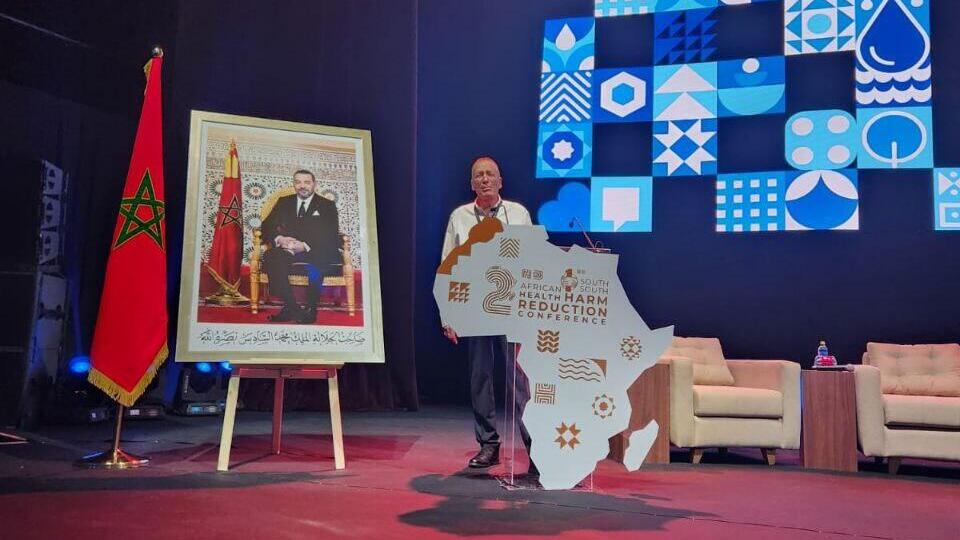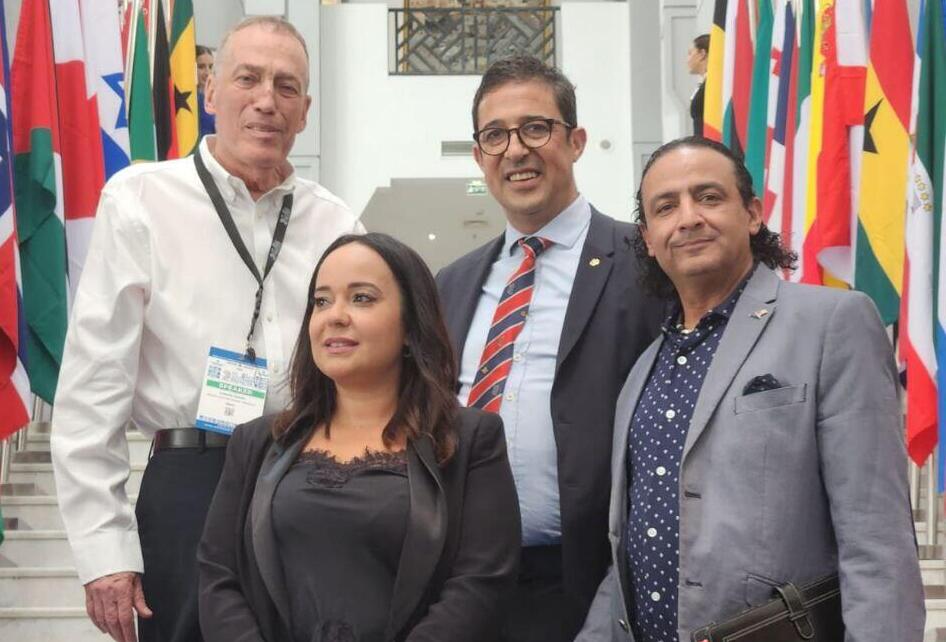After Morocco rejected most offers of international assistance following the devastating earthquake that claimed the lives of nearly 3,000 people, an Israeli expert was invited to one of the main conferences in the field of medicine in Africa and spoke with senior officials about how the continent's health system treats common injuries.
More stories:
Professor Avi Rivkind, professor of surgery and trauma specialist at Hadassah Ein Kerem Hospital in Jerusalem, who lit a torch at the national Independence Day ceremony on Mount Herzl last year, was invited to Morocco to give a special lecture on crushing injuries, which are considered very common among survivors of severe earthquakes.
2 View gallery


Professor Avi Rivkind lectures on injuries sustained during earthquakes in Morocco
(Photo: Professor R. Rabii)
"Following the earthquake, they added a special panel on earthquakes and natural disasters," according to Rivkind. "They had immediately arrived at their conclusions and wanted to hear the opinions of other experts. I was the only doctor on the panel and I talked about other aspects, such as the treatment of crushing injuries and fat embolism as a result of long bone fractures in the legs or pelvis."
"I also spoke about the necessity of quickly arriving at the disaster scenes while taking into account the safety of both the rescuers and the rescuers," the professor added. "The reactions were exceptional and then I took this lecture and expanded on it in Casablanca, where I spoke to doctors, nurses and paramedics."
Prof. Rivkind points out that the Moroccans did not want international aid packages, "and they clearly said that they did not think they needed help or that the international community should help. It seems that they took control of it. They realized quite quickly that they were getting by and rejected not only our help, but the help of the entire international community. I didn't get the impression that they regret it."
2 View gallery


Professor Avi Rivkind and other Israeli officials at the conference in Morocco
(Photo: Professor R.Rabii)
The special conference, which took place last week in Marrakesh under official state sponsorship, was attended by representatives from all over the continent - as well as from the United States and European countries. It focused mainly on the issue of water and food safety, but following the disaster the focus was also expanded to include other issues. Among the other Israeli participants: Professor Arnon Afek, deputy director-general of Sheba Medical Center and acting director of Sheba General Hospital at Tel Hashomer ; and Professor Eyal Leshem, director of the Center for Travel Medicine and Tropical Diseases, Sheba Medical Center
The conference was held only a week after the major disaster that hit the country last month. Initially, the Foreign Ministry and the Health Ministry announced that they intended to send a large-scale aid delegation to Morocco to assist in rescue efforts and medical treatment – but in a short time it became clear that the Moroccans rejected all requests for international aid and dealt with the incident, as well as with the evacuation of the bodies and the medical treatment of the wounded, independently and without external help.

